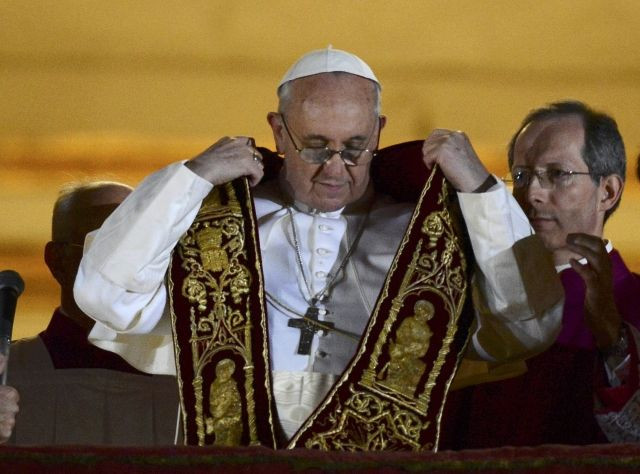
Just after 3 p.m., EDT, the now-former Archbishop of Buenos Aires, Cardinal Jorge Mario Bergoglio was named the 266th successor of St. Peter, taking the name Pope Francis I. He succeeds Pope Benedict XVI, the former Joseph Cardinal Ratzinger of Germany. This is the first time a pope has been elected who comes from outside Europe in modern times. Those considered top candidates hailed everywhere from Manila to Manhattan.
Considered a long shot by many, Francis I was born to a working class family in Buenos Aires on Dec. 17, 1936. He was ordained in 196, and served in his previous role of Cardinal-Archbishop of Buenos Aires since 1998. Pope Francis is the first Jesuit priest to become pope, and although he is not from the United States, he is considered the first pope to hail from the Americas.
He, like many catholic leaders, stands staunchly against abortion as well as same-sex marriage. He has been critical of his home government in Argentina in that latter regard.
Bergoglio was considered pope immediately following the vote of the cardinals. However, a formal installation will take place in a few days at a yet unannounced time. He will then receive his fisherman's ring, a symbol of the papacy, and will be driven around St. Peter's Square to meet his followers as well as celebrate his first papal mass.
Pope Francis was elected on the fifth ballot of the conclave, which is considerably faster than historic elections, the longest of which lasted three years. His Eminence's predecessor, Benedict, will continue to live in the Vatican as well, receiving the title "Pope-Emeritus."
The new religious leader comes at a time of great importance in the Catholic Church. The Vatican is still recovering from the priest sex-abuse scandal in the United States while at the same time working at expanding the church throughout the world. The age of social media is also causing an evolution in the church, as Twitter and other tools become an additional way for the Vatican to reach out to his followers.
It remains to be seen what issues Pope Francis will put at the forefront of his papacy, but one thing is for certain: Whatever the initiatives the new pope takes on, he will have the full support of the church throughout the world.
© 2025 Latin Times. All rights reserved. Do not reproduce without permission.




